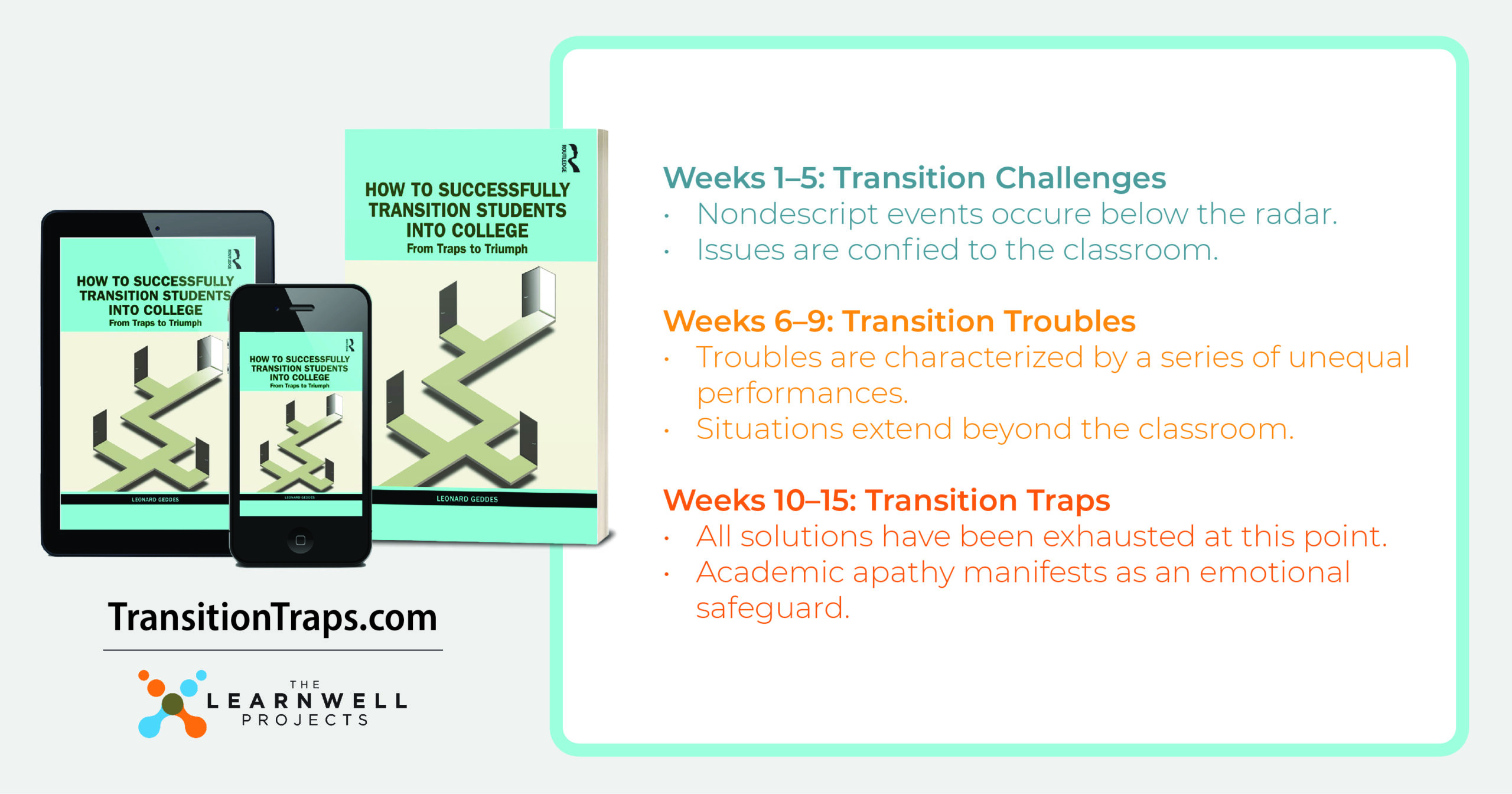 As the academic year draws to a close, it’s common to find students, faculty, and staff feeling a bit emotionally drained. Remember, it’s not unique to this year—many of us have been here before. But what if we could end the year on a high note instead?
As the academic year draws to a close, it’s common to find students, faculty, and staff feeling a bit emotionally drained. Remember, it’s not unique to this year—many of us have been here before. But what if we could end the year on a high note instead?
Successful organizations delve deep into the roots to appreciate the fruits of their labor. This reflection reveals a pivotal concept: transition traps. These hidden snares can hinder student performance and transform college from a transformative journey into a mere transaction.
How to Successfully Transition Students into College: From Traps to Triumph, provides real-life stories of educational communities that have escaped these traps, ensuring a vibrant end to the academic year.
Have you noticed signs of these transition traps? Let’s discuss more! I will host a webinar series on this topic during the summer. Leave a thoughtful comment on this topic and I’ll send you a free registration link. Stay tuned for more details. Let’s transform our academic experiences together! 🎓🚀

0 Comments